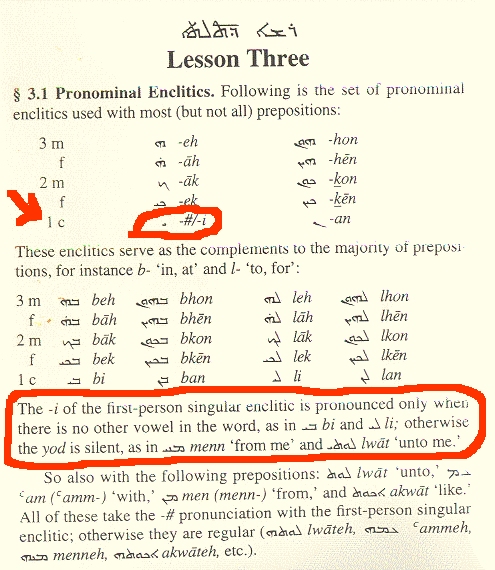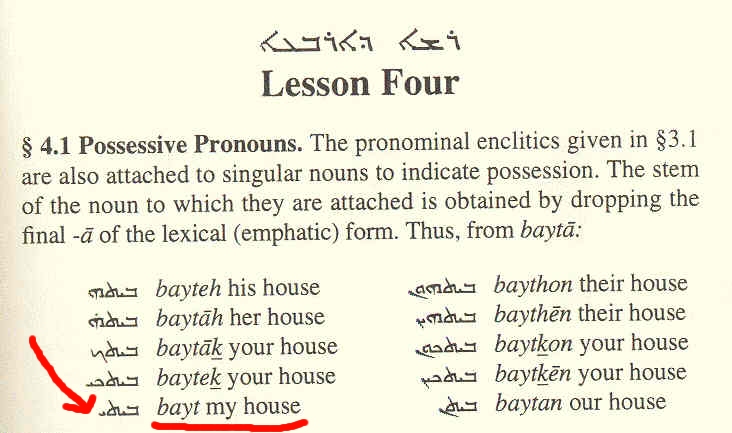Akhi Sieg,> Gosh, this is pretty difficult..
> a-kEy
You are 100% correct - it would be pronounced "Akh-eee".
This is called a Possessive Pronoun. Broken down grammatically, it is constructed using the noun "Akha" ("brother") dropping the final Alaph and appending a Yodh ("ee", "mine") to the end to signify the 1st-person possessive.
In every dialect of Aramaic, this final Yodh ("ee") would be vocalized.
In every dialect, that is, except one. That one single exception happens to be, you guessed it, "Syriac".
Here are the 2 lessons from Thackston's grammar:


So as you can see, in "Syriac" - the 1st-person singular enclitic which ends a Possessive Pronoun is not vocalized.
Pretty strange, huh? So in "Syriac" we would vocalize "Akh" instead of "Akh-ee". In fact, if you read Akhan Abudar's posts, you will see that he properly addresses me as "Akh Paul" instead of "Akhi Paul", according to the rules of "Syriac" vocalization.
So now, what does this have to do with Meshikha's dialect as preserved in the Greek NT?
Well, the reading in this example is Mark 7:11 - we read in the Greek:
"But you say that if anyone tells father or mother, "Whatever support you might have had from me is Corban (that is, an offering to God)" (GNT)
In the Aramaic of the Peshitta, however, we read:
"But you say that if anyone tells father or mother, "Whatever support you might have had from me is Ynbrwq (Qurbanee)" (ANT)
Without, of course, a need to have the portion in the paranthesis! 
Now, Akhi - what sayest thou concerning this? Chalk up point 3?
Fk^rwbw 0ml4

Peshitta.org

